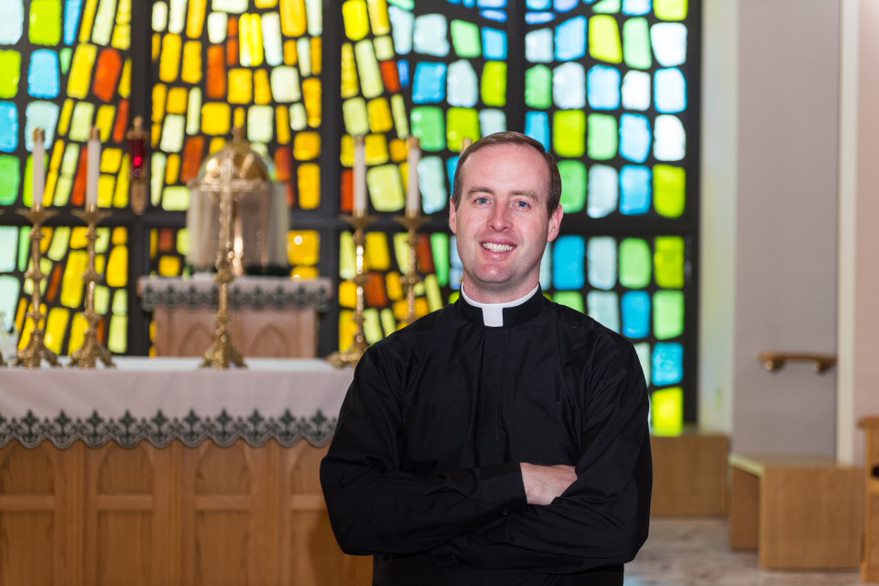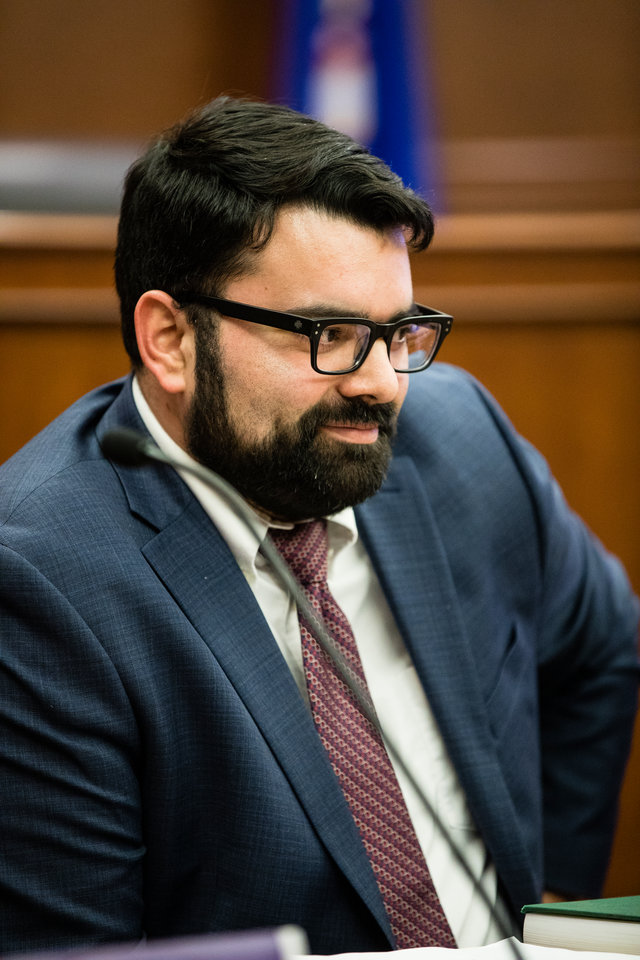Beware of the “inoculation effect.” This, says Father Luke Meyer, is when many have some general exposure to Catholicism in a long-standing ecclesial community, but not necessarily the kind of robust faith that has been strengthened by years of authentic community, a disciplined life of prayer, and a personal sense of mission. “So faith is not yet complete or mature, but often assumed to be so, and consequently stops seeking and searching the depths.”
Working on a secular campus, Father says, there’s less of this danger, “Because it allows for a different kind of first response of the heart and mind to the life of the Catholic community and the truths of faith. [It can be] a generous and exciting response to something new.”
And it has been an unexpected grace of ministry in a secular environment for Meyer. “A secular culture,” he says, “is one that is forgetful of God, so I have seen a big part of my priestly ministry on a secular campus as having the effect of helping others remember God through the eschatological witness of being a public person consecrated to God. As I attend athletic events, eat in the dining halls, and take walks through campus, I notice how much others notice the presence of a priest, sometimes with surprise, sometimes with gratitude, and sometimes with a combination.”
At the University of North Dakota, science and medicine are particularly well-represented majors and rich soil for meaningful conversation.
“I find the ongoing engagement of questions of bioethics to be a constant intersection of faith and reason,” Meyer says. “It’s as if I assume half my audience has a skeptical outlook when addressing matters of faith by engaging philosophical categories, encouraging the bold questions, and including many references to questions that others likely are asking in their mind, but may not want to ask publicly.”
The interdisciplinary foundation of Catholic Studies has been especially helpful to him in his current ministry. Because Catholic Studies takes up a “broad focus on all aspects of the human person, not just the academic, but the spiritual, moral, and the aesthetic,” he says, “it’s a significant part of attending to the importance of forming an authentic humanity.”
And beauty, especially as it has been taken up with Catholic Studies, has also played an important role. “The many ways that Catholic Studies engages the cultural achievements of art, literature and music have helped me utilize the treasures and beauty of Christian culture and spirituality as a real bridge to connect with the humanity of those whom I serve.” For as much as Meyer remains a very public witness to his faith, he never forgets the realities that go unseen.
“I remember a spiritual director pointing out the hidden effect of one’s own prayer upon the interactions of the world,” he says, “so I see great value in time given to silence and prayer, not just as a need for personal growth in holiness, but as a real service to the common good of society.”





